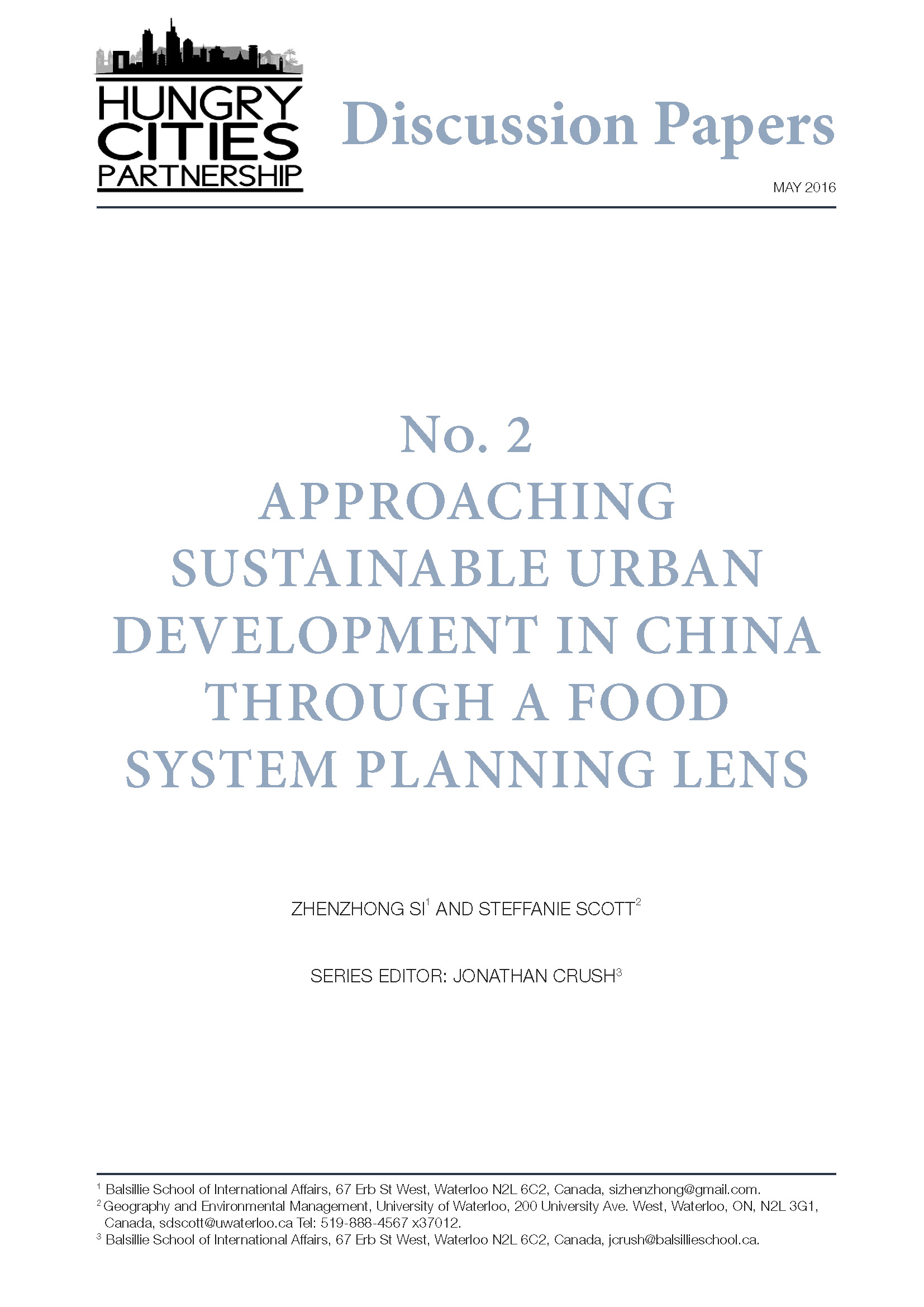After more than two decades of rapid urbanization, Chinese cities now face severe sustainability chal- lenges in terms of balancing economic viability, social justice, and environmental protection goals. While various types of planning have long been adopted to cope with these challenges, food as a centrepiece of daily life and of social and economic activity in cities has rarely been considered as a focus of urban planning in China, despite a lot of recent attention to food waste and food safety concerns. China’s food policy is largely fragmented in terms of its multiple regulatory agencies and diverse policy goals. Amid this complexity, there has been little attention to using the food system as a lens to understand and tackle the various social, economic health and environmental challenges in cities. This discussion paper argues for the integration of food issues into urban planning in Chinese cities. Drawing on survey data and specific observations from Nanjing, it shows that China’s urban planning has inadvertently addressed a number of important aspects of sustainable food systems. The paper provides a preliminary analysis of various priorities for food system planning and identifies strengths and challenges in terms of achieving sustainability goals in Chinese cities. The analysis highlights various priorities for future urban food policy making including fostering the development of diverse food procurement channels and short food supply chains, strengthening the role of the informal food sector for urban food security, promoting healthy, sustainable diets and ethical consumption, and reducing food waste.

